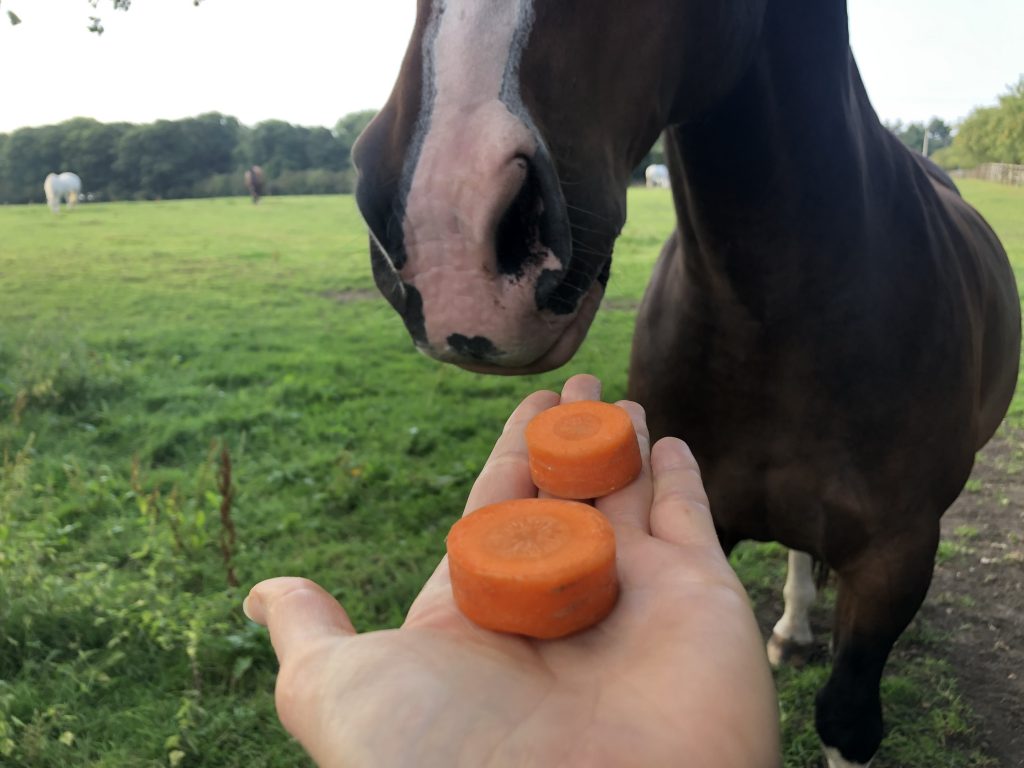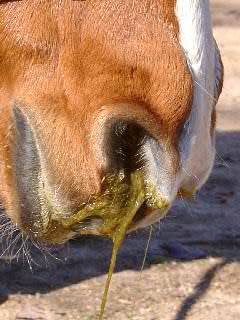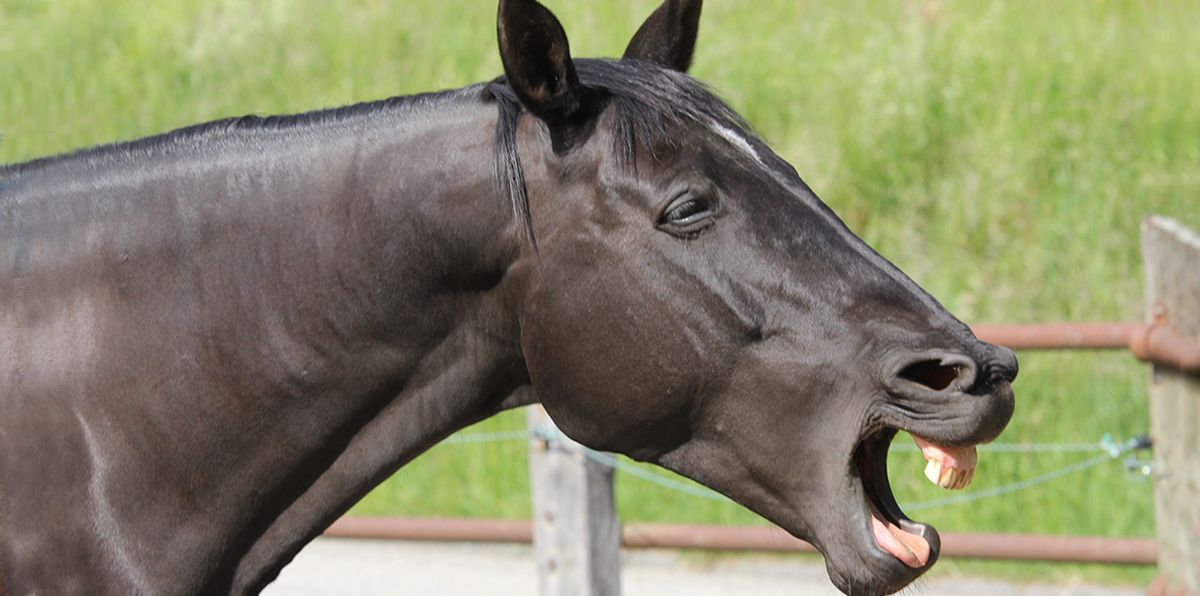Have you ever swallowed something like a dry piece of meat the wrong way and it wasn’t able to go down the right way? It happens with horses too. You probably can already read your horse’s expressions, so when she has an alarmed or confused expression, you know to take notice and carefully consider why she’s feeling this way.
When an obstruction develops in the esophagus, doing the wrong thing, even if it’s a minor event, can potentially turn into a life-threatening problem. If you’ve never seen it choke in horses, it can be very upsetting to experience. When a wad of feed that hasn’t been chewed well, or even a dense treat like a chunk of apple or carrot gets stuck in the throat, her muscles may spasm and clamp it in place. When this happens, you’ll see her cough, gag, and produce a remarkable amount of drool and nasal discharge. Horses have also been reported to choke on items like paper, plastic, baling twine, or even your favorite a riding crop. The general rule of thumb is that if she can get it into her mouth, she can choke on it, so keep things that are not meant for consumption out of her reach.

Although much less likely, an esophageal defect or scar tissue makes the esophagus narrow or constricted in the damaged areas increasing the likelihood of a choking incidence. Our veterinarian can determine if the esophagus is defective or if the esophagus has been scarred with an endoscopic exam.
Different than in people, choke in horses doesn’t necessarily interfere with the ability to breathe, since the food is stuck in the esophagus, the tube that connects the mouth with the stomach, not the trachea, so it’s not an immediate threat to life. In fact, it will usually subside on its own. But, if it doesn’t, you’ll need to think on your feet to make sure that a minor issue doesn’t turn into serious complications.
Here are some signs your horse might be experiencing choke:
- She abruptly stops eating
- An alarmed or confused expression
- Coughing, gagging, retching while stretching her neck or shaking her head
- Heavily drools
- Has nasal discharge with bits of food
- Shows signs of discomfort such as sweating or pawing

WHAT TO DO
The first thing you should do is remove all feed and water from her area and do not let her graze. Sometimes a choking horse will still try to eat and drink. As you can imagine, this would only exacerbate the problem by increasing the size of the blockage.
Call us. Choke that lasts more than 1 hour needs assistance to prevent strictures and aspiration pneumonia. While you’re waiting for our vet to arrive, hand walk her and perform some massage on the left side of the neck from the jaw to the chest in the jugular groove.
Monitor the situation. Wipe away nasal discharge with a clean rag but be sure to tell the vet the color of the discharge, the volume and consistency, and whether it contains bits of chewed food. If you can, take photos and/or videos to share with Dr. Hancock.
Keep us updated. If you think the choke has passed, call Dr. Hancock and she will walk you through what to do next. Likely an emergency visit will not be needed, but a routine appointment should be set up to check your horse for risk factors for choke.
FOLLOW-UP CARE
Watch for continued cough, or a fever or runny nose. If you notice this in the days following a choke, you need to let us know. This could indicate a secondary bacterial infection or that foreign material has traveled to her lungs causing aspiration pneumonia which is very difficult to treat and can be fatal.
One of the main causes of choke is that feed material was not properly chewed (ground) prior to swallowing. In order to avoid choke it is crucial that your horse have proper, routine dental care.
Emergency choke treatment, access to critical diagnostics, and dental care are all provided by Rocky Valley Veterinary Services, in addition to all your other horse’s preventative care and other emergencies. Be sure to follow us on Facebook and call us if you experience an equine emergency at 865-566-8359.

Leave a Reply